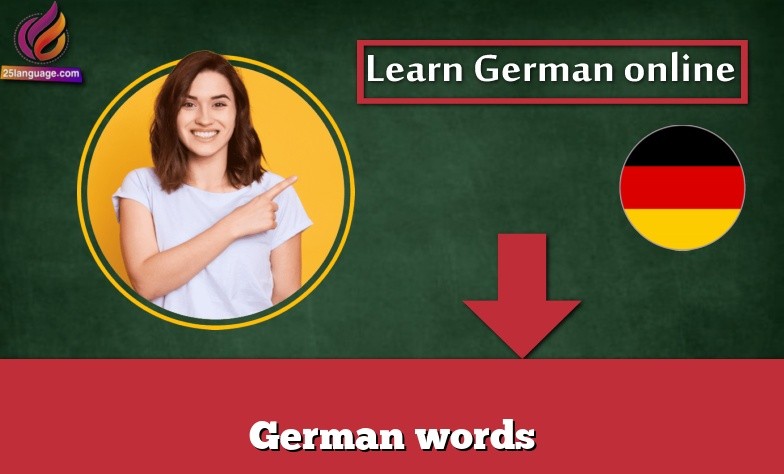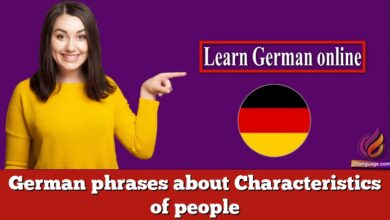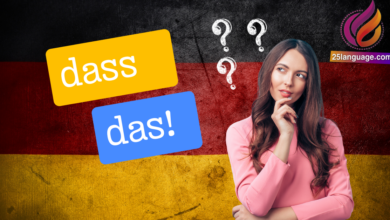German words
How many words are in the German language?

German words.
Nevertheless, German is known for its very long, compound words. A compound word is formed when two words (or sometimes even more) are used together to create a new meaning.
compound German words
Here are a few compound German words to start learning.
- • Handschuh: Hand + Schuh (Hand + shoe): Glove
- • Flugzeug: Flug + Zeug (Flight + Staff): Airplane
- • Staubsauger: Staub + Sauger (Dust + Vacuum): Vacuum cleaner
- • Waschmaschine: Wasch + Maschine (Wash + Machine): Washing machine
- • Trockenzeit: Trocken + Zeit (Dry + Time): Dry season
- • Orangensaft: Orange + Saft (Orange + Juice): Orange juice
- • Haustürschlüssel: Haus + Tür + Schlüssel (House + Door + Key): Front door key
- • Sprachschule: Sprache + Schule: Language school
- • Zimmerservice: Zimmer + Service: Room service
- • Hauptbahnhof: Haupt + Bahnof: Main train station
- • Superwetter: Super + Wetter: Great weather
Top 10 most common German words
1. Hallo = Hello
Let’s naturally start with “Hallo ” which means “Hello” in German. This is one of the most known words in German and a great way to start a conversation with someone from Germany.
2. Liebe = Love
Love is a universal feeling and we definitely had to talk about it here. German people have a lovely way of saying they love someone or something through the word “ Liebe “.
3. Glück = Happiness
When there’s love, there’s definitely happiness. We are all chasing “ Glück ” as German-speaking people would say. Listen closely and you might just get some “Happiness” in your life today:
4. Katze = Cat
Let’s talk pets. There are two types of people in the world: cat people and dog people. We are going to talk about cats first or how people in Austria would say: “ Katze “. Listen to how it sounds like:
5. Hund = Dog
But let’s not forget our lovely and loyal companions, dogs. A dog in German is “ Hund “, a really useful word for dog lovers worldwide. Here is how you would pronounce it:
6. Lächeln = Smile
Now it is time to smile. Or how someone from Germany would say: “ lächeln “. Smiling makes us happy and helps us stay healthy, so that’s why we all need to smile every day. Here’s the German pronunciation:
7. Deutscher = German
Next, let’s see how people in Germany say “German”. The correct answer is “ Deutscher “. Listen to how a German speaker would pronounce it:
8. Ja = Yes
German speakers say “yes” by simply saying “Ja ”. Enhance your understanding by listening to how a person from Austria would pronounce this word:
9. Danke = Thank you
A single “thank you” is all you need to make people smile everywhere you go. Here’s a native speaker thanking you in German: Danke
10. Tschüss = Goodbye
No polite conversation can end without a proper goodbye or “ Tschüss ” – how German people usually say. Here’s how to correctly pronounce it:





























